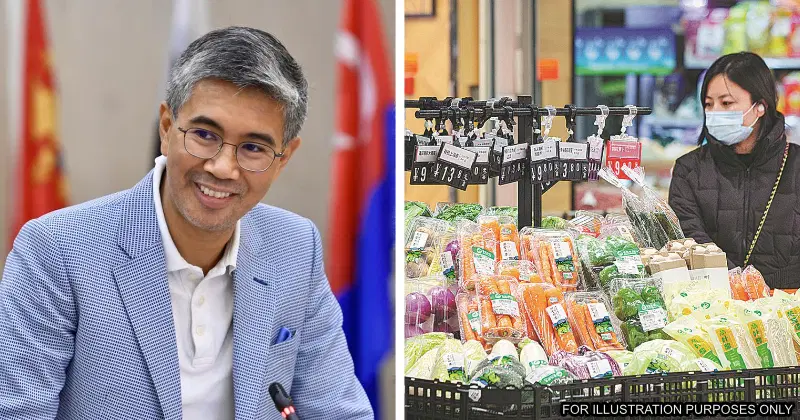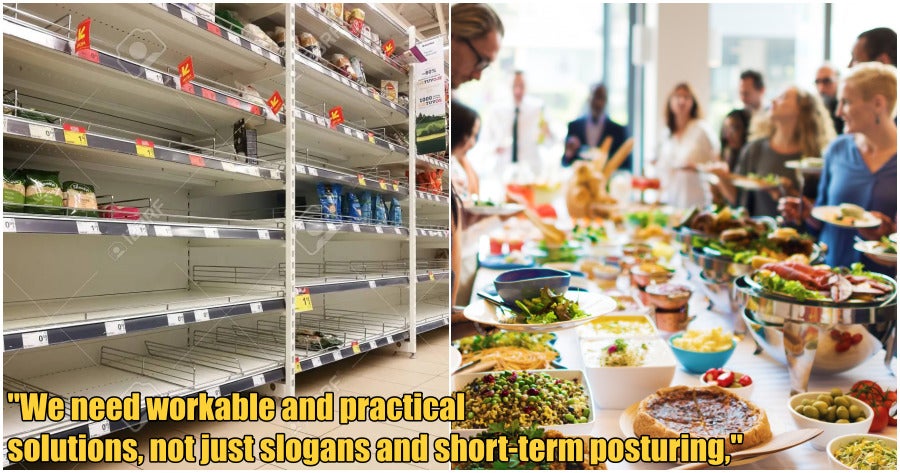By now, it is safe to say that almost everyone is feeling the effects of the food shortages and the consequent increase in food prices.
The Malaysian government has taken several measures to address these issues – from implementing ceiling prices for chicken, providing subsidies for cooking oil and most recently, distributing cash aids to B40 households and individuals.
However, many are saying that these measures are unsustainable as they would not resolve the issue of food shortages as well as people’s concern about the rising cost of living.
A list of solutions
Dr Khor Swee Kheng, a physician specializing in health systems and global health, recently shared a couple of tweets listing a number of suggestions on how to solve food shortages.

The list is divided into three categories: ‘More Useful’, ‘Less Useful’, and ‘Not Useful’.
In the ‘Not Useful’ category, Dr Khor listed 3 of the measures the Malaysian government has taken in response to the food insecurity crisis: Setting up a Task Force, blaming foreigners for taking up food subsidies and advising citizens to eat less.

In the ‘Less Useful’ category, he highlights that increasing imports is less helpful in the long term as it would make more sense for Malaysia to grow our local food production.
According to a Mardi (Malaysian Agricultural Research and Development Institute) report, Malaysia only produces 71% of the rice we need, 66% of the fruits we need, and 40% of the vegetables we need.

“These numbers can be considered low, especially since Malaysia is blessed with fertile soil and abundant water for agriculture, with significant government subsidies and support provided by various government agencies since the 1960s,” Dr Khor explains.
Additionally, although the government’s distribution of cash aids to B40 households and individuals is welcomed, Dr Khor suggests that food assistance kits would make more sense because the issue is food shortage.
No magic short-term solution
Commenting on which solutions or measure is most effective, Dr Khor shares that “food security is a multi-factorial problem that needs multi-factorial solutions.”

“There are no magic short-term overnight solutions for this complex problem, which is why the government must adopt long-term multi-agency solutions and not rely on short-term task forces or price ceilings,” he said.
He also told WORLD OF BUZZ, “Some solutions are technical and relatively simple, like increasing R&D for climate-smart agriculture to increase crop yields. Other solutions are political and more complicated, like ruthlessly eliminating cartels and middlemen.”
“We need workable and practical solutions, not just slogans and short-term posturing,” he adds.
In the replies to the tweet, netizens have also shared what they think would be some good solutions to consider.


Should we stop buffets for now?
In a subsequent tweet, Dr. Khor also shared how suspending buffet lunches and dinners at hotels and restaurants for the time being may help solve the food shortage in Malaysia.

This is because buffet meals tend to produce lots of food waste.
The idea was well-received by most of the netizens under the tweet, as they also shared how it would be reasonable for hotels and restaurants to only offer ala carte menus for now.

What do you think? Let us know in the comments!
Also read: Finance Minister: Govt’s Cash Aid & Subsidies Helped Save M’sians From An 11.4% Inflation Rate








































